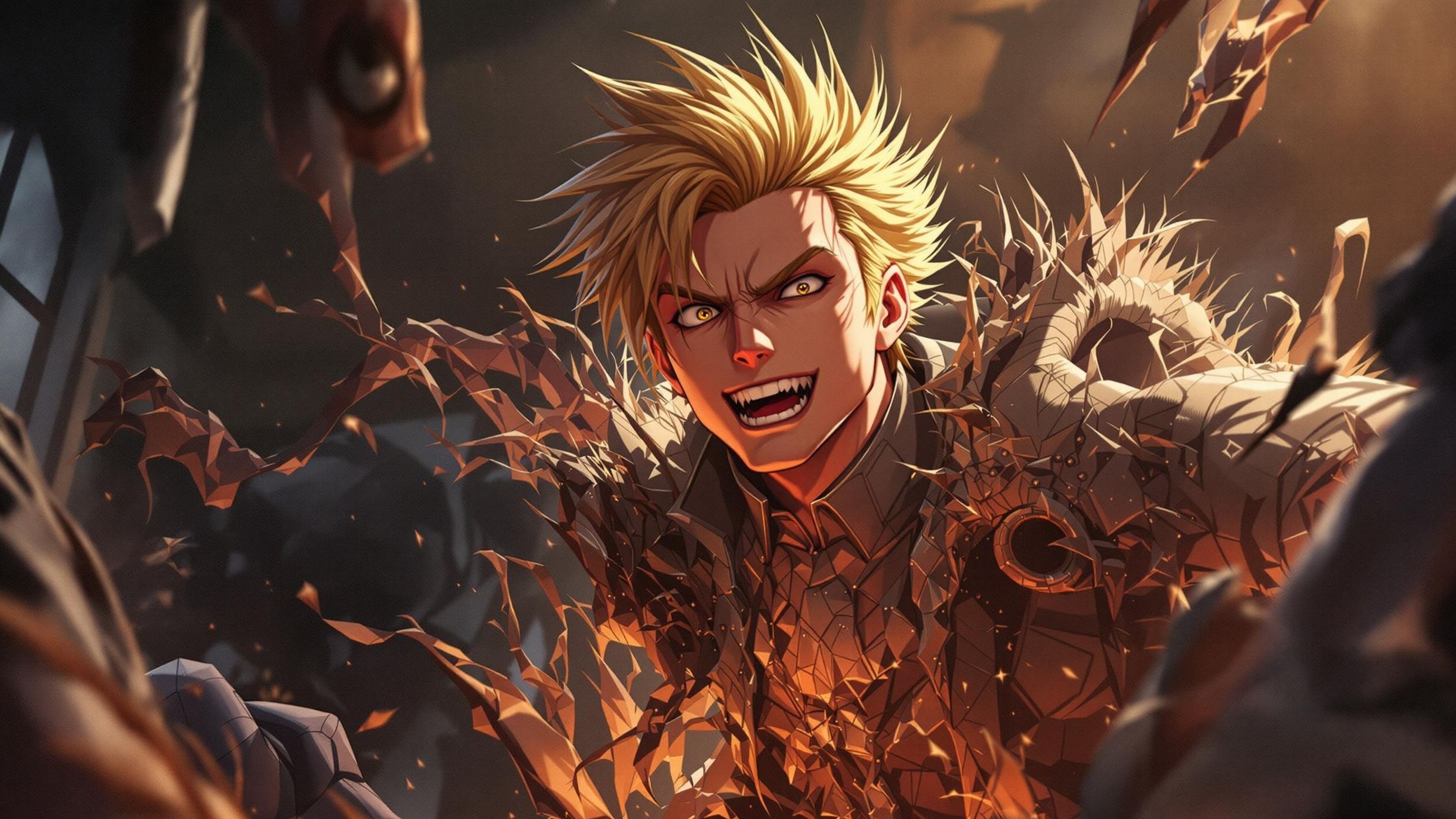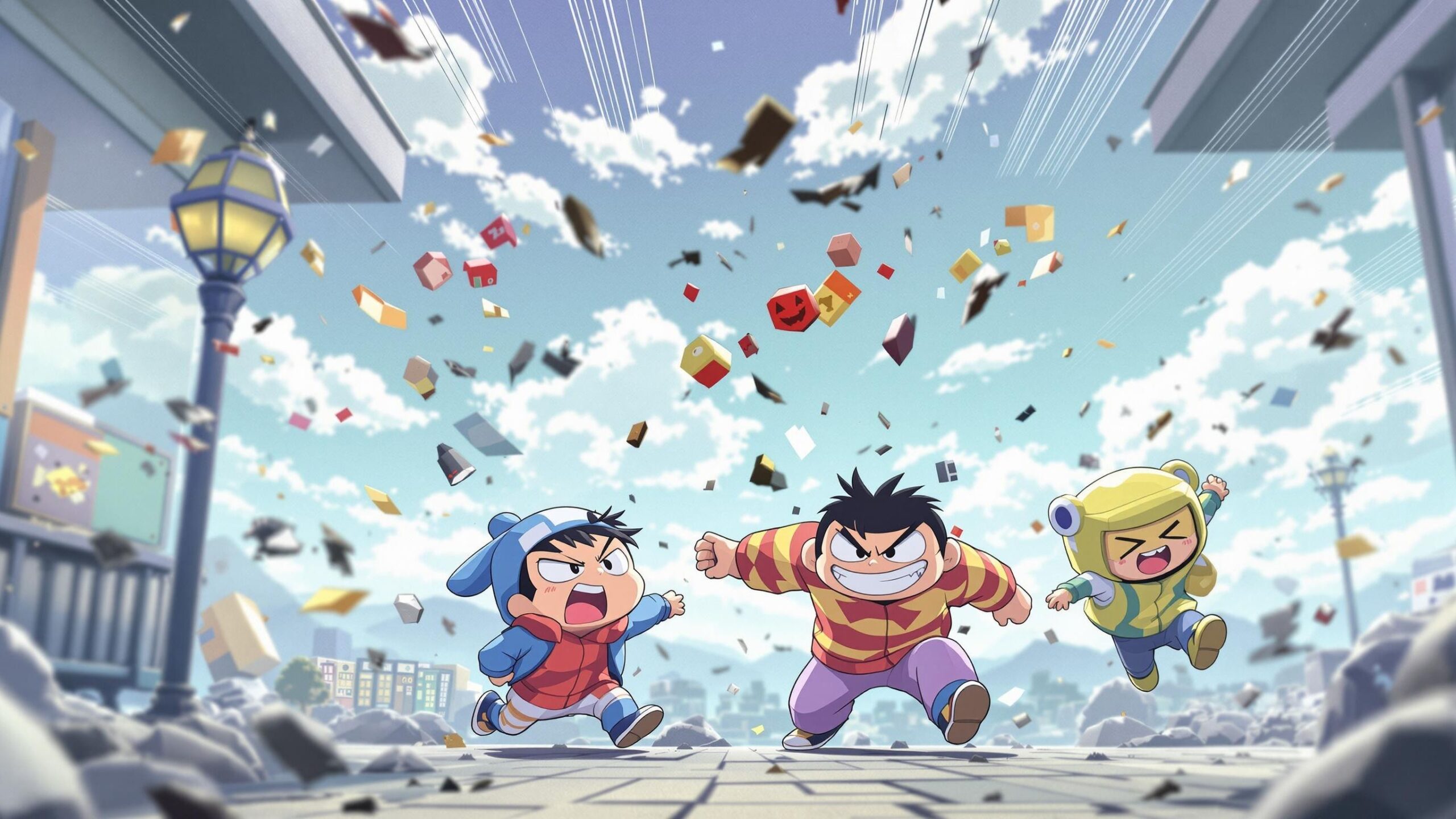Johan Liebert isn’t just a villain; he’s psychological terror incarnate. In Monster, he doesn’t need supernatural powers or flashy fights to horrify. His weapon is his mind—cold, calculating, and capable of manipulating others to destroy themselves. Johan doesn’t yell or rage. He whispers. He smiles. And he leaves a trail of shattered psyches and moral ruin in his wake. These are the Top 10 Most Bone-Chilling Johan Liebert Moments in Monster—moments that prove true evil doesn’t shout… it speaks softly.
#10: Johan Tells Karl Schuwald He’s His Son
In one of his earliest manipulations, Johan enters the life of blind millionaire Hans-Georg Schuwald and calmly claims to be his long-lost son, Karl. He does it not with desperation or emotion, but with a carefully rehearsed calm. He learns everything about Schuwald’s past, then weaponizes that pain for his own agenda. What makes this moment chilling isn’t the deception itself—it’s Johan’s complete control. He knows exactly what to say, when to say it, and how to say it. Watching Schuwald begin to question everything—and watching Karl, the real son, be completely displaced—sets the stage for Johan’s psychological warfare. He doesn’t need to raise a hand. He simply rewrites people’s identities. And worse—he enjoys it. This is the beginning of the slow realization that Johan isn’t just smart. He’s surgical in his cruelty.
#9: Johan Walks Into a Building and Convinces Everyone to Kill Themselves
No guns. No knives. Just words. In one of the most quietly horrifying sequences, Johan walks into a room full of people and, using nothing but psychological manipulation, gets every single person to commit suicide. This moment isn’t shown in full—it’s implied. We see the aftermath: bodies, despair, and silence. The series lets our imagination fill in the blanks, which somehow makes it even worse. Johan doesn’t gloat. He doesn’t announce what he’s done. He simply walks away. The horror lies in his complete detachment and the absolute control he has over the human mind. We never even learn the names of the victims. They become symbols of how Johan doesn’t just destroy lives—he erases them. His charisma isn’t flamboyant; it’s a void that pulls people into the abyss willingly.
#8: The Library Scene With the Children
In a twisted echo of storytime, Johan sits down with a group of children and calmly begins to read them a picture book—The Monster Without a Name. His voice is gentle, his tone inviting. But as the story unfolds, it becomes clear that this tale is a reflection of his own life: a metaphorical descent into becoming a monster devoid of identity or empathy. What makes this moment bone-chilling is the setting—children, innocence, and Johan infecting it with his nihilistic ideology. He’s not just telling a story. He’s recruiting minds. Twisting the formative years of vulnerable kids with philosophies of emptiness and control. It’s one of the most subtle but deeply disturbing scenes in Monster, and it shows how Johan doesn’t need violence to leave permanent scars.
#7: Johan Stands Atop the Rooftop Fire in Ruhenheim
In the fiery climax of the series, the town of Ruhenheim descends into chaos, manipulated by Johan’s long-laid plans. As the town burns and people slaughter each other in confusion and rage, Johan stands above it all—silent, watching. This isn’t the chaos of war. It’s orchestrated madness. Johan pulled the strings, ignited the matches, and then stepped back to admire the destruction like a twisted artist viewing his finished work. The eeriness comes from how disconnected he is from the carnage he caused. No shouting. No cheering. Just a stillness that makes the horror even louder. It’s a modern version of Nero fiddling while Rome burns—only Johan doesn’t need an instrument. He already played the world.
#6: Johan’s Conversation With Dr. Tenma at the Hospital
After Tenma saves his life, Johan reappears at the hospital where Tenma works. Their meeting is quiet. Polite. Johan thanks Tenma. But behind every word is a slow-burning threat. Johan’s presence alone is enough to chill the air. He’s not aggressive. He doesn’t even raise suspicion among the other doctors. But Tenma knows. And the audience knows. We’re watching a man thank the doctor who unknowingly saved a monster. The unease in this scene is masterful—there’s no violence, but it’s suffocating. Johan’s words feel like a noose tightening around Tenma’s ideals, questioning whether saving lives is always the right choice. It’s a moment that turns a hospital—usually a symbol of safety—into a stage for psychological dread.
#5: Johan’s “Perfect Suicide” Speech to Schuwald’s Secretary
This scene showcases Johan at his most disturbingly poetic. He speaks to Schuwald’s secretary—a woman harboring secrets and regrets—and softly convinces her to end her life. Not with threats. Not with violence. Just with carefully chosen words. He walks her through her despair, recounts her life’s regrets, and then gently makes her believe that death is her own idea. The horror of the moment isn’t just in the outcome—it’s in how he does it. Johan doesn’t scream or force anyone. He just speaks with the eerie calm of someone who’s studied every facet of the human mind. He becomes her reflection, her confessor, her executioner. This moment cements Johan’s philosophy: that life has no meaning, and that true control lies in making people believe their destruction is self-chosen. It’s not just manipulation—it’s psychological euthanasia. The viewer feels helpless, disturbed by how easily the line between reason and despair can be erased by a man like Johan.
#4: Johan’s Conversation With the Orphanage Director
When Johan returns to the orphanage where he spent part of his childhood, he pays a visit to the former director. It starts as a reunion but quickly descends into something much darker. Johan calmly recalls details of the psychological experiments performed on children—horrors the director had buried under bureaucracy and memory. With that same bone-dry smile, Johan turns the tables, reminding the man that he helped create him. The scene oozes tension. Johan never raises his voice. He simply lays out the facts like a prosecutor with no interest in justice—only in letting guilt fester. And then he leaves, letting the director stew in the realization that he played a role in the birth of a monster. The fear here doesn’t come from what Johan does, but what he represents—a product of systemic cruelty who has chosen not to heal, but to infect. It’s a moment that unravels a man with nothing but presence.
#3: Johan as the Invisible Manipulator Behind the Serial Killings
One of the most unnerving aspects of Johan is how often he’s not present—but everything still leads back to him. As detectives and doctors uncover a web of suicides, murders, and disappearances, a pattern starts to emerge: Johan is always in the background, pulling strings. He doesn’t always commit the murders himself. He just whispers in the right ear, nudges the right thought, and lets human nature do the rest. What makes this chilling is the realization that Johan doesn’t even need to be near you to ruin you. He weaponizes people’s weaknesses. He reads their flaws like open books and turns them into his own chess pieces. This omnipresent threat makes every seemingly innocent character feel suspect. The world of Monster begins to feel contaminated, haunted not by a ghost, but by an idea. Johan becomes a myth that breathes—alive in every act of cruelty, every unraveling psyche, every broken life.
#2: The “Welcome to Darkness” Scene
In one of the most iconic and chilling moments of the series, Johan delivers a monologue that haunts both the characters and the audience. Standing in front of a terrified man, Johan welcomes him “to the darkness.” The line is simple—but the delivery is ice-cold. Johan isn’t shouting. He isn’t threatening. He’s inviting. And that’s what makes it so terrifying. He doesn’t believe in salvation. He believes everyone has a void inside them, waiting to be embraced. Watching him speak those words is like watching a priest deliver a sermon for damnation instead of redemption. The way the camera lingers on his unblinking stare, his perfect posture, his inhuman serenity—it’s horror in its purest, quietest form. That phrase, “Welcome to the darkness,” isn’t just something Johan says. It’s something he offers. And people accept it far more often than they should.
#1: Johan’s Monologue About the End of the World
The most chilling moment in Monster doesn’t come from a murder or a manipulation—it comes from a quiet monologue Johan delivers about what he wants: to die in a place where no one will remember his name. A place where his very existence will be erased. For someone who’s orchestrated chaos, war, and mass death, you might expect his endgame to be domination. But no—Johan’s ultimate dream is oblivion. He wants to disappear so completely that even the idea of him vanishes. This isn’t just existential. It’s nihilistic horror on a cosmic scale. Johan’s actions are terrifying—but this moment reveals why: he doesn’t believe anything matters. Not life. Not death. Not even memory. And he wants to drag others into that abyss with him. The quiet, almost tender way he speaks these words is what truly unhinges the moment. It’s not the rant of a madman. It’s the calm conclusion of someone who’s seen the void—and wants to become one with it. It’s the closest anime has ever come to making evil feel like an empty sky.
Johan Liebert isn’t just one of anime’s greatest villains—he’s one of its most profound horrors. He doesn’t rely on violence to be terrifying. He relies on silence. On suggestion. On knowing you better than you know yourself. Every scene with him pulses with unease, not because of what he might do—but because of what he already did before you even realized he was there. These bone-chilling moments from Monster reveal the true nature of evil: not loud, not explosive, but elegant, invisible, and devastating. Johan isn’t a character you forget. He’s a shadow that stays long after the story ends.




